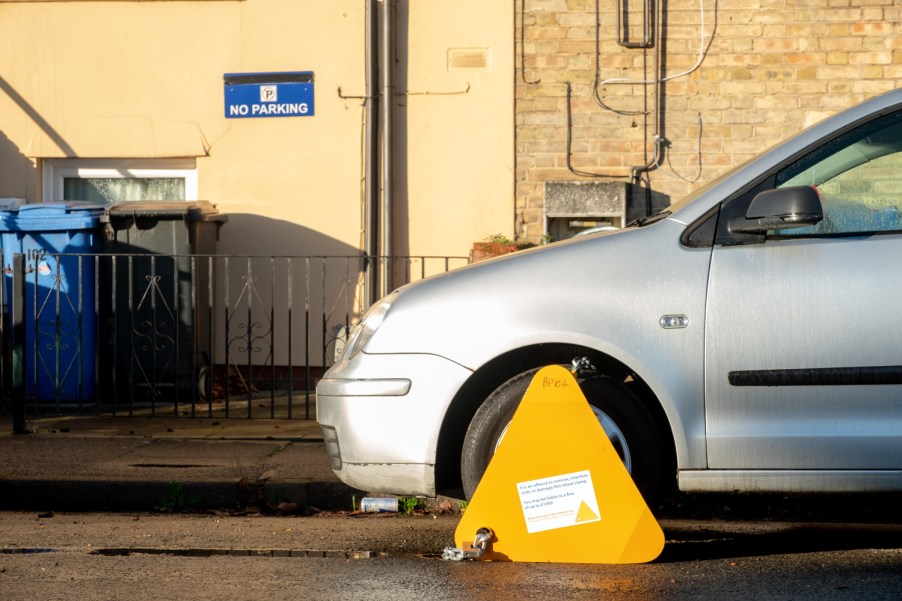
Beware of Illegal Car Repossessions, Warns the Consumer Financial Protection Bureau
The prices of used cars still haven’t come down, which has left some people in desperate situations. In some cases, the Consumer Financial Protection Bureau warns that illegal car repossessions are on the rise. How are these companies illegally repossessing cars, trucks, and sport utility vehicles from unsuspecting people?
The Consumer Financial Protection Bureau says illegal car repossessions are on the rise

The Consumer Financial Protection Bureau (CFPB) is a government organization “that implements and enforces federal consumer financial law and ensures that markets for consumer financial products are fair, transparent, and competitive.” The organization says that illegal car repossessions are on the rise thanks to the high prices of used cars.
What exactly does that mean? Shady companies have been trying to take advantage of the situation by utilizing illegal car repossessions. It has been observed that unlawful car seizures, inadequate record-keeping, and unreliable documents have culminated in companies being able to take personal property. These companies might also demand an unreasonable ransom for the property.
CFPB Director Rohit Chopra said, “With today’s high car prices, auto lenders and investors might be tempted to seize vehicles for resale in the hot used car market.” Chopra noted that automotive loan servicers should ensure that all paperwork is correct before repossessing a car.
Why illegal car repossessions are so harmful to the market
Demand is strong for used cars right now, thanks to COVID-19 problems and semiconductor chip shortages, causing a lack of new car inventory. That means prices have stayed high for months. The CFPB says that is prime time for “risky auto repossession practices.” The company can then re-sell the in-demand vehicle to another person for more money after the repossession.
“To secure an auto loan, lenders require borrowers to give creditors a security interest in the vehicle. Sometimes, auto loans are bundled and sold to investors as securities. Servicers then collect and process auto loan or lease payments from the borrowers. If a borrower defaults, creditors often repossess the vehicle, then sell it.”
Consumer Financial Protection Bureau
A car repossession usually has a snowball effect on the person leasing the vehicle. Not having a car might mean not being able to get to work, which can result in further defaulting on loans, plus having to pay for other transportation.
Such repossessions violate the Consumer Protection Act
The CFPB is taking legal action against these repossessions to curb this issue. These acts violate the Dodd-Frank Wall Street Reform and Consumer Protection Act, which protect consumers from unfair and deceptive acts. The CFPB describes these acts as illegally seizing cars, sloppy record-keeping, unreliable balance inquiries, and ransom for personal property.
Car loans are the third-largest consumer credit market in the U.S. right now. At $1.46 trillion in outstanding debt, that’s more than double the amount it was 10 years ago.
Try to find a reliable used car from a reputable company to avoid these shady business tactics. If you know a business that the CFPB might like to hear about, you can report potential industry misconduct on the CFPB website. There is also an email and phone number available.
RELATED: Consumer Reports on Avoiding Predatory Car Repair Loans



